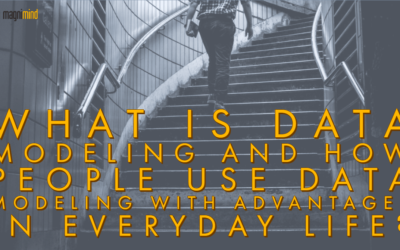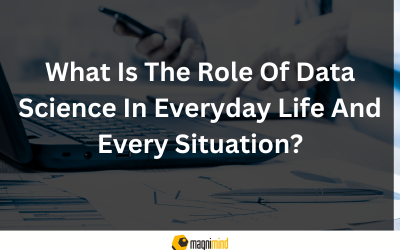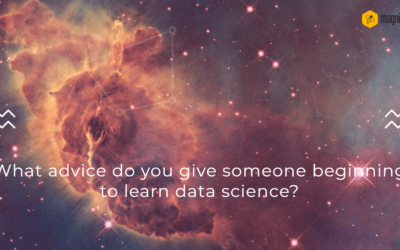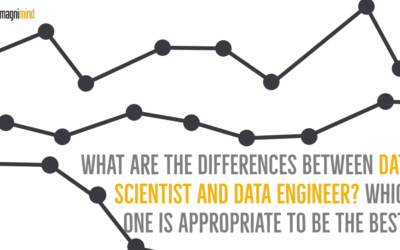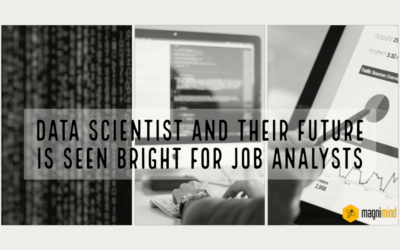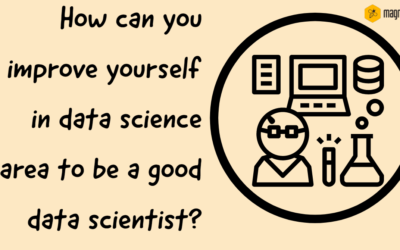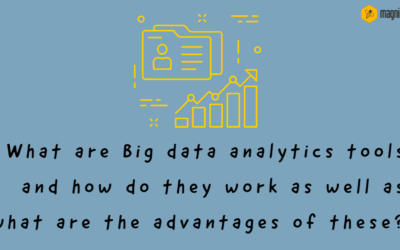Data science features significantly when you talk about high paying future jobs. To understand what’s driving this trend, which experts say will only grow bigger with time, you have to know how the technology landscape has experienced tremendous growth and undergone a sea change over the last few years, thanks to a high degree of reliability on computer programs, data-based analysis, and digital technology. Working with huge sets of data and making data-driven decisions, in particular, have become a norm in most sectors – from banks and fintech to transportation, IT, and more. After all, almost each interaction with technology has data at its core. Thus, be it your online purchase at marketplaces like Amazon, streaming recommendations for you on Netflix or Amazon Prime, your Facebook feed, or even the facial recognition necessary to sign into your phone, almost everything leverages data to perform certain operations. No wonder why data science is the flavor of the season. Experts in the domain of data science predict that in several companies and industries that are less tech-forward than others, where data science today plays a supportive (or back-office) role in the business, the scenario will change soon in the future as these companies and industries get ready to access a huge amount of data – both structured and unstructured, as well as feedback loops. And that’s what makes the job of data scientists one of the most coveted ones in today’s world.
Data Science Blog

How People Use Data Modeling With Advantages In Everyday Life?
Data modeling stands for the process of developing a descriptive diagram that demonstrates relationships between different types of information which are to be stored in a database. It’s a theoretical presentation revolving around data objects and associations between different data objects. Data modeling is an important skill for every data science professional, whether one is architecting a new data store or doing research design for his/her organization. To excel in this key component of data science, one needs to have the ability to think systematically and clearly about the major data points to be stored as well as retrieved, and how they need to be related and grouped.
What Is The Role Of Data Science In Everyday Life And Every Situation?
There’re lots of people who closely associate data with privacy issues, data leaks, and profit maximization techniques. Also, terms like data science, analytics, statistics, databases etc are ones that most people associate with the professional world exclusively. However, all these and many of their associated ones aren’t meant for data science professionals only. In reality, most people experience the role of data science in their day-to-day lives and in almost every situation. From new friend suggestions by Facebook to Google’s help to complete a search phrase to television shows predicted by Netflix in accordance to your preferences, and many more – data science is being used by common people in almost every situation.
What Advice Do You Give Someone Beginning To Learn Data Science?
The data scientist is considered as the best job in the USA for 2019 with $108,000 as a median base salary, plus an attractive number of predicted openings. According to the prediction made by the IDC (International Data Corporation), in 2020, worldwide revenues for business analytics and big data will reach over $210bn. These statistics are more than enough to motivate someone to learn data science. If you need some more reasons to learn data science, it’s associated with a huge number of new applications and industries that emerge from the judicious use of massive amounts of data. From self-driving cars and robots, bioinformatics, speech recognition to object recognition, neuroscience, and many more – data science is central to the entire organization dealing with any of these.
What Are The Differences Between Data Scientists And Data Engineers?
The domain of data science has been at the focal point of discussion for quite a few years now and there are no signs of it slowing down. As more and more businesses, organizations, and companies are waking up to the importance of extracting important insights from the pile of data that they are sitting on, the demand for data scientists, data engineers, and other experts in the field has increased significantly. No wonder that while there’s an increased focus on bringing such data science talent onboard, a whole new set of data science titles and roles too have been created to address the needs of the market.
Data Scientist Is Better Than Financial Analyst, Data Analyst And Research Analyst
If you have an analytical bend of mind, you may consider a career in the field of data science. Though there are many options to take your pick from, most aspirants have their eyes fixated on the coveted job of data scientists. But who exactly are data scientists? You may call them a new class of analytical data expert, who possess the technical skills necessary to solve complex problems. At the same time, these people also have the inquisitiveness to search for problems that need to be solved. Thus, when defining a data scientist, you can say it’s someone who blends some expertise of a computer scientist, a mathematician, and a trend-spotter. What’s the beauty of the field of data science is that it has numerous applications in various domains. Thus, you will find that there’s a high demand for data scientists in both the business domain and the field of IT, which make these professionals highly sought-after and well-paid. No wonder why a majority of aspirants looking to make a mark in the field of data science aim to become data scientists.
Data Scientist And Their Future Is Seen Bright For Job Analysts
In the U.S., data scientists are experiencing some of the best job choices, based on the average salary and the number of available opportunities in the field. With the emergence of big data, businesses have explored a new asset – data that can help them experience huge growth when leveraged properly. You may already know that almost all the giant tech companies including Google, Facebook and Amazon have leveraged data in order to create their own business platforms. This perfectly explains the need for a different set of trained professionals who can organize, analyze, and derive valuable insights from data – the data scientists.
How Can You Improve Yourself In Data Science Area To Be A Good Data Scientist?
The role of data scientist surely involves a lot of great things and those are the reasons professionals from across the globe are striving to step into the field of data science. Businesses, regardless of their field and volume, are looking to recruit ‘effective’ data scientists. We mentioned the term ‘effective’ because there is a huge supply of so-called data scientists that often fail to meet the expectations. The continuing media hype around data science has heavily exploded the volume of junior talents over the past few years.
What Are Big Data Analytics Tools And What Are The Advantages Of These?
By now, it has been fully established that big data is much more than just a buzzword, which was thought once by a lot of people. Instead, it’s probably the biggest asset that businesses may ever have. In order to leverage big data, businesses need to have robust strategies in place for handling massive volumes of data. And this is exactly where big data analytics tools come into the picture. They help businesses to identify trends, point out patterns and derive many valuable insights that can be used by decision-makers to make informed business decisions.


